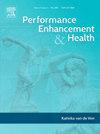"当我服用它时,它会给我力量去工作......":曲马多的消费、业绩提升和男子气概的产生
IF 3.7
Q2 HOSPITALITY, LEISURE, SPORT & TOURISM
引用次数: 0
摘要
越来越多的研究机构调查了非洲药物类阿片的非医疗消费,特别是为了提高成绩。然而,这些文献与目前关于性能和图像增强药物(piids)使用的研究无关,其中一部分研究探讨了piids的使用如何与男性气概的产生和繁殖有关。本研究将这两篇文献结合起来,探讨年轻男性如何通过非医疗曲马多使用来提高成绩,从而形成男子气概,并强调塑造和合理化这种消费的政治经济和社会文化背景。它从朱迪思·巴特勒、米歇尔·福柯和布鲁诺·拉图尔的作品中汲取了见解,为对尼日利亚非医疗消费曲马多的年轻人进行的39次深度访谈提供了信息。帐户反对非医疗曲马多消费的话语,强调有害,将这种消费作为“自我的技术”,通过这种做法,消费者将自己定义为男性。他们进一步强调了曲马多用于性和工作绩效提升的消费是如何在其“存在模式”内得到验证的,即经济条件和文化规范塑造了年轻男性如何表现男子气概。该研究质疑当代旨在通过惩罚来防止非医疗曲马多消费的负面后果的方法。虽然强调非医疗使用曲马多的潜在负面后果很重要,但同样有必要了解的是,危害和益处是一种经验的结合,而不是相互排斥的现象。认识到并注意到非医疗曲马多消费的复杂性,需要利用消费者的知识和安全消费做法进行协作干预。本文章由计算机程序翻译,如有差异,请以英文原文为准。
“When I take it, it will give me the strength to work…”: Tramadol consumption, performance enhancement and the production of masculinity
A growing body of research has investigated non-medical consumption of pharmaceutical opioids in Africa, especially for performance enhancement. This literature is, however, delinked from current research on performance and image enhancement drugs (PIEDs) use, part of which has explored how PIEDs consumption is implicated in the production and reproduction of masculinities. This study merges these two literatures to explore how young men constitute masculinity through non-medical tramadol use for performance enhancement, highlighting the political-economic and socio-cultural contexts that shape and rationalize this consumption. It draws insights from the works of Judith Butler, Michel Foucault and Bruno Latour to inform analysis of 39 in-depth interviews with young men who consume tramadol non-medically in Nigeria. Accounts counter discourses of non-medical tramadol consumption that emphasize harmfulness, enacting this consumption as ‘technologies of the self’, practices through which consumers defined themselves as men. They further highlight how tramadol consumption for sexual and work performance enhancement is veridicted within its ‘modes of existence’, namely the economic conditions and cultural norms that shape how young men perform masculinity. The study questions contemporary approaches that aim to prevent the negative consequences of non-medical tramadol consumption through penalization. Although it is important to emphasize the potential negative consequences of non-medical tramadol consumption, it is equally necessary to understand that harms and benefits constitute a knot of experience, rather than mutually-exclusive phenomena. Recognizing, and attending to, the complexities of non-medical tramadol consumption invites collaborative interventions that harness the knowledge and safe consumption practices of consumers.
求助全文
通过发布文献求助,成功后即可免费获取论文全文。
去求助
来源期刊

Performance enhancement and health
Social Sciences-Health (social science)
CiteScore
4.70
自引率
0.00%
发文量
27
审稿时长
57 days
 求助内容:
求助内容: 应助结果提醒方式:
应助结果提醒方式:


